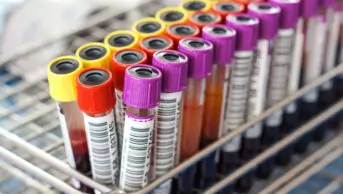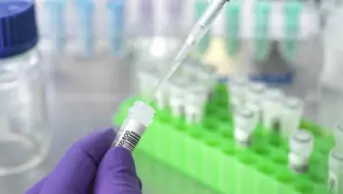
Shutterstock.com
NHS Scotland is tendering for a £66m pharmacogenomics and pharmaceutical clinical decision support service to safely identify patients at greatest risk of harm from polypharmacy.
The aim of the service is to enable prescribers to develop an efficient, safe and effective medicines regimen that is tailored to meet the patient’s changing needs, in order to improve the management of polypharmacy in primary and secondary care.
The service will include a pharmacogenetic panel, whereby multiple genetic variants that affect drug responses will be tested simultaneously and stored in a patient’s electronic medical record. This will provide prescribers with clinically actionable pharmacogenomics information while prescribing relevant drugs.
According to an NHS Scotland document, seen by The Pharmaceutical Journal, phase one of the procurement began on 29 November 2021 with the aim of identifying an “innovation partner” to develop the integrated pharmacogenomics service, valued at £66m, for NHS Scotland.
The document said the project will comprise two distinct phases, the first of which will involve an “appropriately powered” patient trial in the Glasgow area involving 10,000 to 20,000 patients that “must be delivered within 30 months or less from the award date of the contract”.
This phase will determine the clinical and economic viability of the project; following its completion, the agreement will either be terminated or extended into phase two — the potential widespread adoption of the service across NHS Scotland.
The document said that the service should aim to provide “enabling tools”, such as the pharmacogenetic panel, to implement pharmacogenetic testing and integration into electronic health records and clinical decision support systems.
For the processing of data and results from the panel, the report said there might be a human intervention, likely a qualified pharmacist or a qualified medical practitioner.
Other tools mentioned in the document include developing an education programme to improve clinicians’ and pharmacists’ confidence and familiarity with pharmacogenomics, and also to support public understanding and acceptance around pharmacogenetic testing.
Bidders were expected to submit single procurement documents by 5 January 2022, with evaluation due to be completed by 31 January 2022.
The invitation to tender was then scheduled to be issued on 1 February 2022 with the submission of initial tenders due by 4 March 2022.
The final framework agreement will be awarded in July 2024.
Sophie Harding, pharmacogenomics leads at the Royal Pharmaceutical Society, said the service is an exciting development within the implementation of pharmacogenomics within Scotland.
“The availability of this service should have a significant impact on the future day-to-day practice of all prescribers especially within primary care,” she added.
“It will make an important contribution to the delivery of a high level of patient care to patients by reducing the occurrence of adverse drug reactions and therapeutic delays in patient response.”
Adam Osprey, policy and development pharmacist at Community Pharmacy Scotland, said he could “absolutely see” how community pharmacy teams could contribute to improving safety and outcomes related to medicines regimens, informed by pharmacogenomic assessments.
“The Medicines Care and Review service supports patients with their long-term conditions, including reviewing and making suggestions as to how to optimise their medications,” he continued.
“It is quite clear to see how community pharmacists would use pharmacogenomics-related information to build on this function — potentially using their independent prescribing skills to adjust therapy appropriately.”
Read more: Everything you need to know about the NHS genomic medicine service


